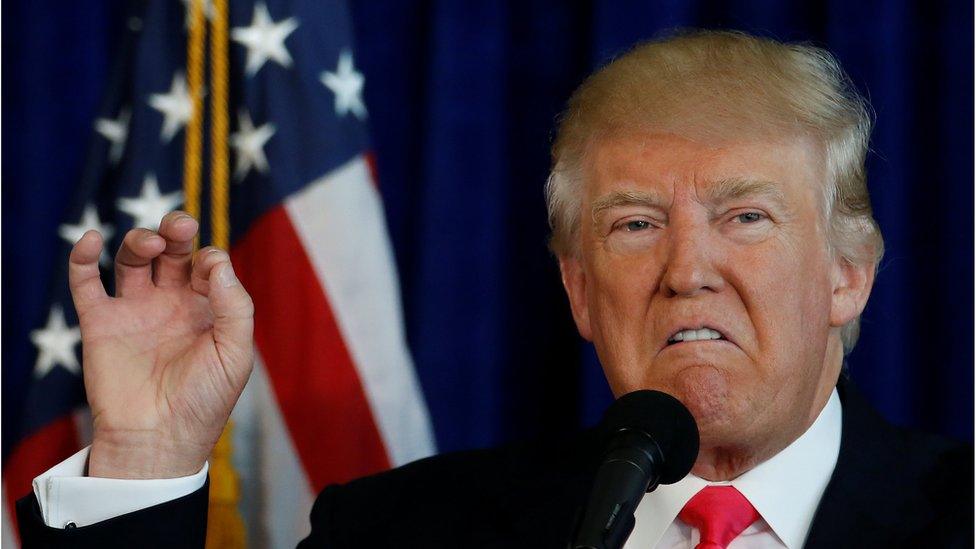What Trump and Clinton would mean for US foreign policy
- Published
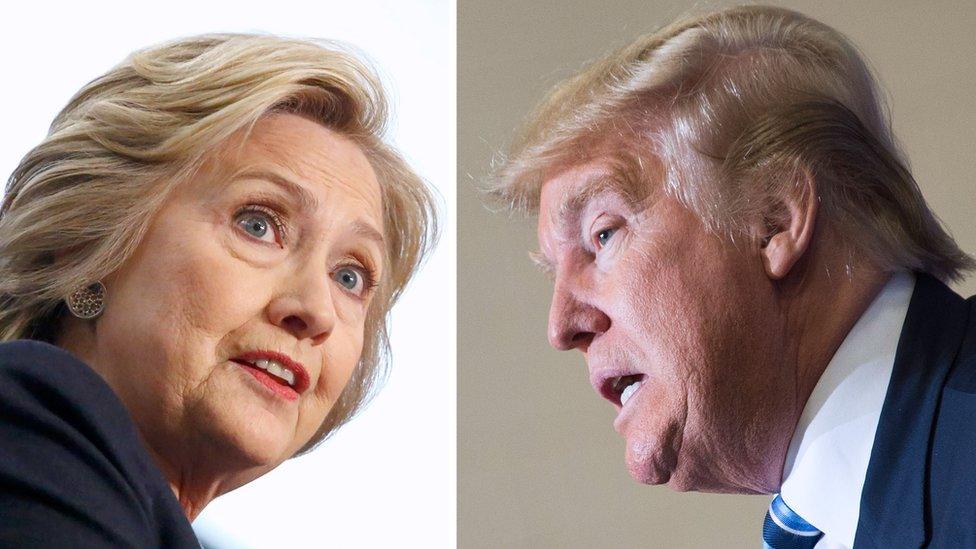
America's allies are weighing up the foreign policy approaches of both main candidates
Who sits in the White House matters for the world. For the United States, despite all the reports about its relative decline and diminishing influence, remains the one truly global power.
This year's presidential race is being watched even more closely by governments and foreign ministers around the world.
That is because this is a race like no other. It is hard to remember a candidate as out of step with the existing foreign policy mainstream as the Republican contender Donald Trump.
His views on Russia, on Nato, on Muslims, Mexico - you name it - are at variance with the policies that have dominated US foreign policy thinking for decades.
True, Mr Trump's populist call reflects a frustration with politics as usual which has echoes in many other countries.
Britain's vote to leave the European Union had an element of this. So too does the rise of populist far-right parties such as the National Front in France.
But a US president with such views would be an unwelcome and uncomfortable problem for most of America's allies.
The foreign ministries and embassies of Washington's partners are weighing up the political campaigns, trying to determine not just who might win, but what might their policies be? Who might become the key policy players? And how might the essential direction of US policy change?
Clinton: A known quantity
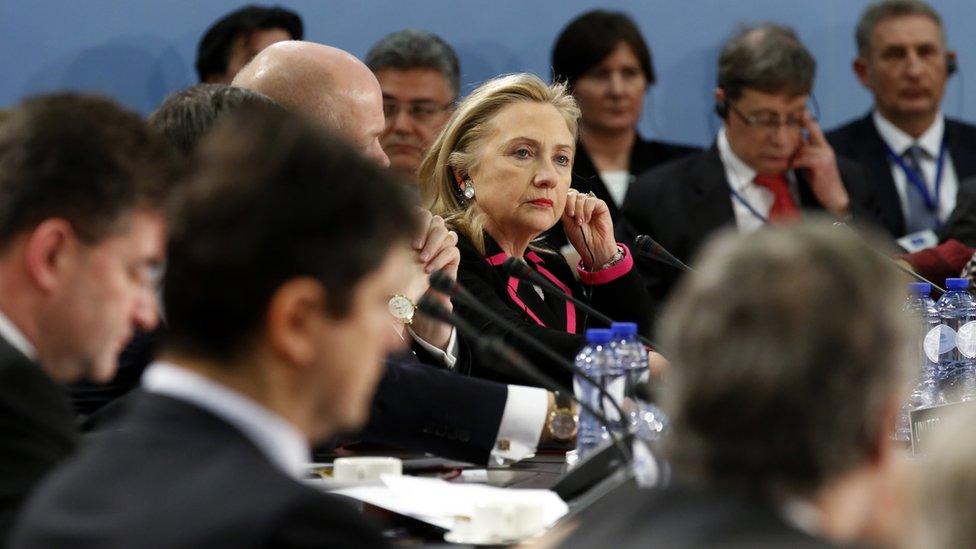
As a former Secretary of State, Hillary Clinton has a firm grasp of the complexities of diplomacy
If Hillary Clinton were to win, most of those questions are relatively easy to answer. As a former Secretary of State under President Obama she is a known quantity. So are many of the people around her.
Some analysts have commented on a more hawkish streak in Mrs Clinton's make-up - there are those in her circle who have advocated a more activist approach on Syria for example.
But under Mrs Clinton there would be a significant degree of continuity in US foreign policy.
That, as far as can be determined, would not be the case under a President Trump.
Trump: An 'interesting' proposition
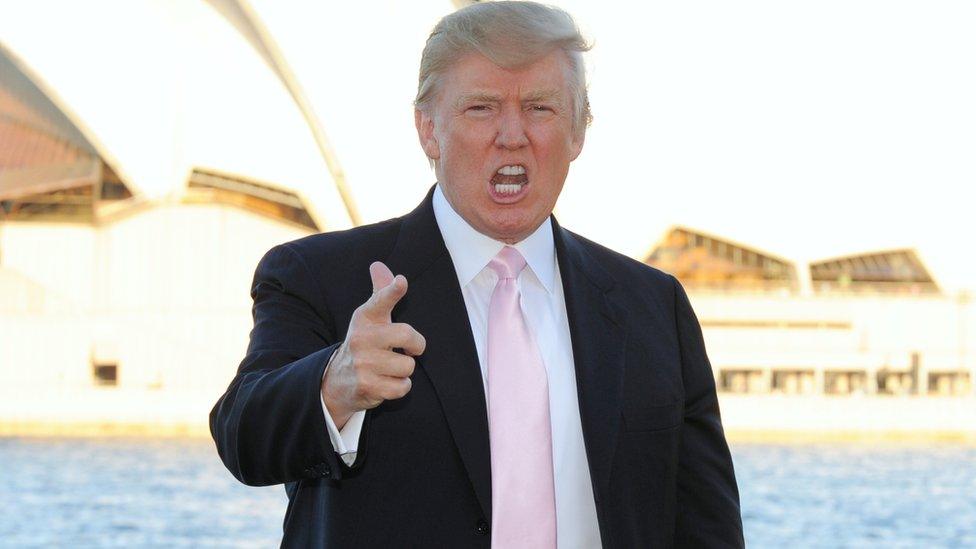
Donald Trump was host of US reality TV show The Apprentice until 2015, where his trademark catchphrase was "You're fired"
As a businessman and reality TV star he has no real experience of foreign policy whatsoever.
It is far from clear who would occupy the key jobs in a Trump administration. His campaign has been largely deserted by the "A" team of Republican foreign policy experts and much of the "B" team as well!
Much of Mr Trump's thinking seems muddled.
In his recent ABC interview for example, it was not clear that he fully understood Russia's role in Ukraine - first commenting that Russian President Vladimir Putin was "not going into Ukraine" and when told that Russia through its seizure of Crimea was already there, Mr Trump accepted "well, he's there in a certain way".
For some, this seemed to hold out the possibility that a Trump administration might accept the annexation of Ukraine to further better relations with Moscow.
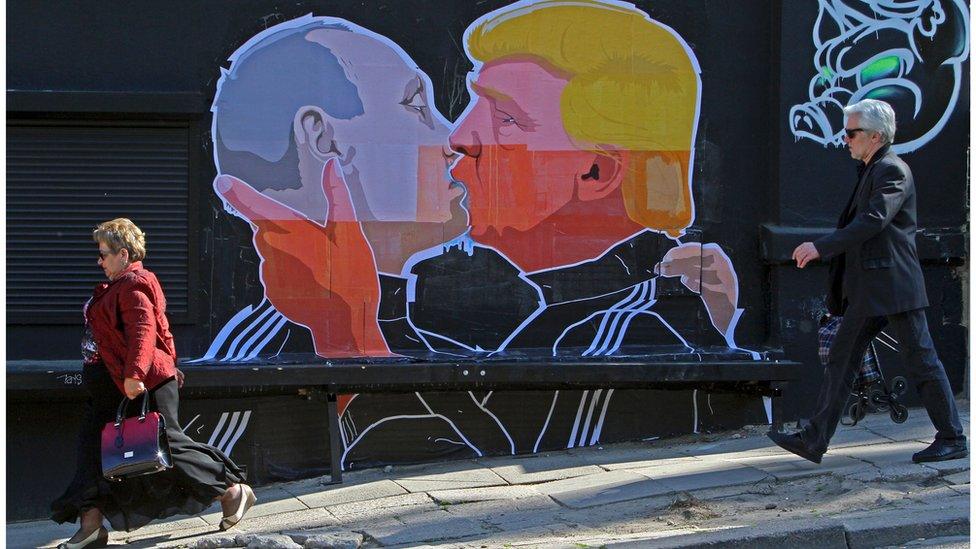
A mural in Vilnius expresses the fear of Lithuanians that a President Trump may seek better US relations with Mr Putin and ignore Baltic security issues
Mr Trump's views on Russia epitomise why his rise is causing such concern among Washington's European allies.
Mr Trump has not just mitigated criticism of the seizure of Crimea. He has raised questions about his willingness to come to the aid of a Nato ally threatened by Moscow.
The close ties of his campaign strategist Paul Manafort with the Russian-backed former Ukrainian President Victor Yanukovych have also raised eyebrows, as have the allegations of Russian hacking of Democratic Party e-mail servers.
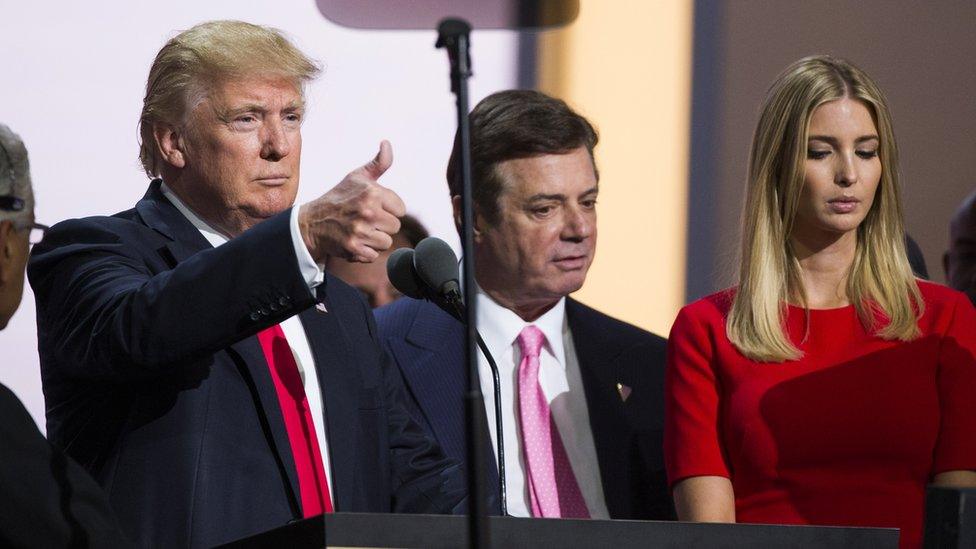
Mr Trump's campaign manager Paul Manafort was adviser to former Ukrainian President Viktor Yanukovych
The motivation behind Mr Trump's stance on Russia is unclear. He obviously thinks he can "do business" with Mr Putin.
He may not be Mr Putin's man. He is not "the Siberian candidate" as some critics have dubbed him (in a reference to 1962 film The Manchurian Candidate in which a right-wing politician becomes the stooge of a communist conspiracy).
But he is self-evidently the candidate that Mr Putin would like to see elected.
Mr Trump's statements about the world are mostly a combination of rhetoric, bravado and bluster. One struggles to draw a coherent foreign policy from them.
But from what he has said so far it suggests that a Trump administration would be "interesting" to say the least.
- Published29 July 2016
- Published3 June 2016
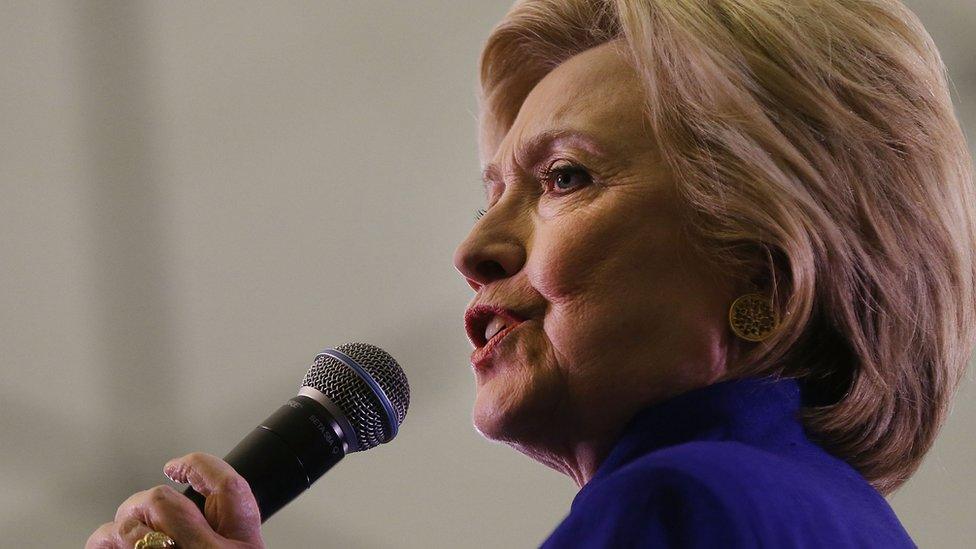
- Published10 September 2024
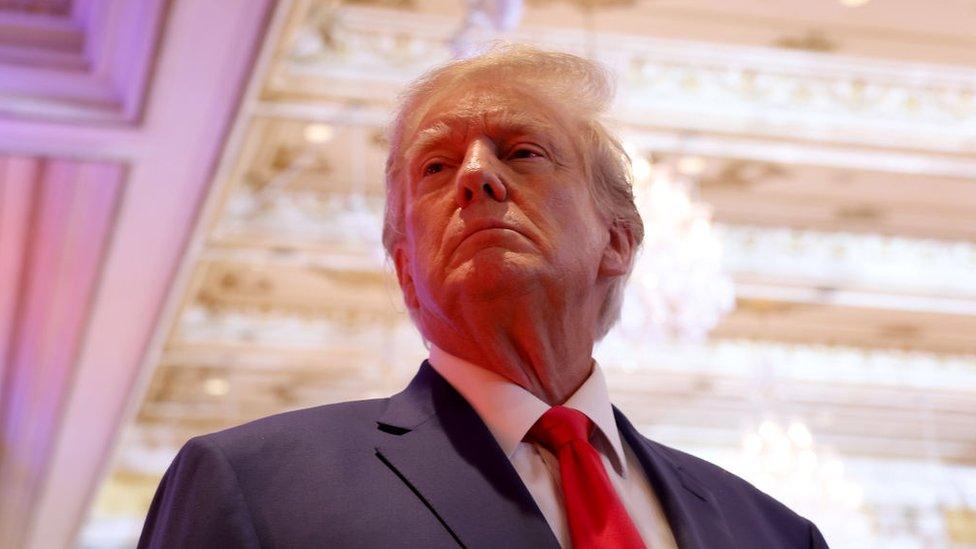
- Published6 June 2016
- Published27 July 2016
